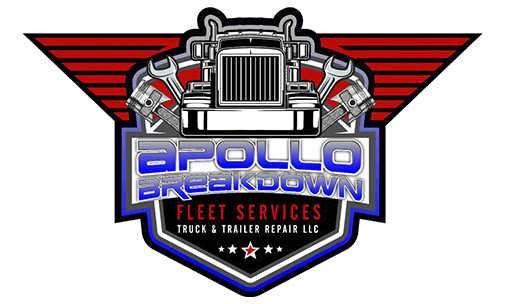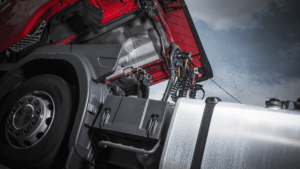Preparing your truck for long-distance travel is crucial to ensure a smooth and hassle-free journey. With the right preparation, you can prevent breakdowns, enhance safety, and improve overall efficiency. Whether you are a seasoned trucker or a first-time long-distance driver, following essential tips can make all the difference. In this document, we will outline the critical steps to ready your truck for the road, covering aspects such as maintenance checks, essential supplies, and safety precautions. Buckle up as we delve into the key practices that will keep your truck running smoothly on your next long-haul trip.
Pre-Trip Inspection Essentials
A thorough pre-trip inspection is the cornerstone of a successful long-distance journey. Begin by checking the engine oil, coolant, and transmission fluid levels. Inspect the belts and hoses for signs of wear or damage, and ensure the battery terminals are clean and secure. Verify that all lights, including headlights, tail lights, and turn signals, are functioning properly.
Next, examine the tires for proper inflation and tread depth. Uneven wear could indicate an alignment issue that needs addressing. Brakes are critical, so inspect the brake pads, rotors, and fluid levels. Don’t forget to check the steering and suspension systems for any signs of wear or loose components.
Finally, ensure that all mirrors are clean and properly adjusted to maximize visibility. Completing these pre-trip inspections can prevent unexpected breakdowns and keep your journey as smooth and safe as possible.
¿Looking for professional help? Our team is 100% trained to help you and solve any problem, visit our website now!
Packing the Right Tools
Packing the right tools is essential for handling minor repairs and maintenance on the road. Start with a basic toolkit that includes wrenches, pliers, screwdrivers, and a socket set. Include a tire gauge and an air compressor to manage tire issues quickly. Jumper cables are crucial for unexpected battery problems.
Consider adding a multi-tool for versatility and a flashlight with extra batteries for nighttime repairs. Duct tape, zip ties, and a portable fire extinguisher can also be life-savers in emergencies. Having a set of spare fuses and bulbs ensures you can quickly replace any electrical components that fail.
Don’t forget to bring along extra fluids, such as engine oil, coolant, and windshield washer fluid. A first-aid kit and a reflective safety vest will help you stay safe if you need to pull over for repairs. Properly packing these tools can make a significant difference in your ability to handle unexpected issues during your trip.
We recommend you to see this article: TRAILER MAINTENANCE TIPS: KEEPING YOUR FLEET IN TOP SHAPE
Route Planning and Navigation
Effective route planning and navigation are vital for a successful long-distance trip. Start by using reliable GPS systems or navigation apps that provide real-time traffic updates and road conditions. Plan your route to avoid areas known for heavy traffic or construction delays.
Consider backup options in case of unexpected detours. Familiarize yourself with key landmarks and rest stops along your route. Knowing where to find fuel stations, restaurants, and rest areas can help manage your time and maintain a steady pace.
Ensure your navigation system is up-to-date with the latest maps and software. Carry a physical map as a backup in case of technology failures. Pre-plan your overnight stops and parking locations, especially if you’re driving through less populated areas.
Do you want to restore the performance of your vehicle? We can help you, contact us now!
Maintaining Health and Safety
Maintaining your health and safety on the road is just as important as keeping your truck in good condition. Start by getting adequate rest before embarking on your journey. Fatigue is a major factor in road accidents, so take regular breaks to stretch and refresh. Aim to stop every two hours or 100 miles to avoid fatigue.
Pack a variety of healthy snacks and water to stay hydrated and nourished. Avoid relying solely on fast food options, as they can lead to sluggishness and poor health. Keep a first-aid kit within easy reach for minor injuries or ailments.
Ensure your cab is ergonomically set up to prevent strain. Adjust your seat and mirrors to promote good posture. Use proper lifting techniques when handling heavy items to avoid injury.
We recommend you to see this article: SEMI TRUCK REPAIR: COMMON ISSUES AND PROFESSIONAL SOLUTIONS
Emergency Preparedness
Being prepared for emergencies is crucial when traveling long distances. Ensure you have a plan in place for various scenarios that might arise on the road.
Start by insuring you have a reliable and fully charged mobile phone and a car charger to stay connected. It’s also wise to have contact information for roadside assistance services. Acquaint yourself with emergency numbers for the areas you’ll be traveling through.
Equip your truck with an emergency kit that includes items such as non-perishable food, bottled water, blankets, and a weather radio. Additionally, having flares or reflective triangles will help signal distress if you break down in a low-visibility area.
Put together a list of important contacts, including family members, your employer, and emergency services, and keep it in an accessible place. Also, familiarize yourself with basic first-aid and know how to handle common roadside emergencies like a flat tire or engine overheating.
Our team is ready 24/7 to assist you, contact us here!
Call us for truck repair road service here. We are in Florida, Texas and Georgia. Open 24/7.






